News
Titanium dioxide still banned in Europe
25 Nov 2022The EU Court of Justice has annulled the regulation that classifies titanium dioxide as a carcinogenic substance in certain conditions – but this does not impact its use as a food additive, which remains prohibited in the EU.
A spokesperson for the European Commission has confirmed to Ingredients Network that the recent decision to annul the regulation impacts use of the chemical in certain applications such as paint and does not impact titanium dioxide’s use as a food additive.

The European Commission banned titanium dioxide (TiO2) as a food additive this year, with the regulation entering full force in August after a six-month compliance period.
However, this week (23 November) the EU Court of Justice announced the General Court had annulled the 2019 regulation that classified titanium dioxide as a carcinogenic substance by inhalation in certain powder forms.
In response, the Titanium Dioxide Manufacturers Association (TDMA) issued a statement saying: “This means that TiO2 is not classified as a hazardous substance in the EU, and the obligations related to hazardous classification will not apply in future.”
“TDMA welcomes the outcome although recognises that there have also been some lessons learned for the TiO2 industry about improving the scientific communication related to the safety of TiO2.”
Confusion resulted with some commentators on social media questioning whether the annulment meant titanium dioxide would once again be authorised in food. However, the additive, which was listed as E171 on ingredient lists, remains banned in food in the EU.
Camille Perrin, senior food policy officer at BEUC, The European Consumer Organisation, tweeted: “Seeing confusion after @EUCourtPress ruling on #titaniumdioxide yesterday. It’s not related to the ban on TiO2 as a food additive. #E171 has been (and will remain) banned in food since early 2022 after @EFSA_EU said it could no longer be considered as safe.”
EU Court: ‘The Commission made a manifest error’
The principal reasons for the annulment were that an error had been made in the assessment of the reliability and acceptability of the study on which the classification was based, and that a classification can only apply to a substance that has the intrinsic property to cause cancer.
The statement issued by the Court of Justice reads: “First, the Commission made a manifest error in its assessment of the reliability and acceptability of the study on which the classification was based and, second, it infringed the criterion according to which that classification can relate only to a substance that has the intrinsic property to cause cancer.”
 © AdobeStock/doganmesut
© AdobeStock/doganmesut
EFSA: Potential genotoxic effects
The Commission acted to ban TiO2 in food following the publication of a scientific opinion by the European Food Safety Authority (EFSA). EFSA reported uncertainties concerning the safety of TiO2 nanoparticles, which meant it could no longer be considered safe.
The scientific opinion also highlighted the potential of TiO2 to directly damage DNA and genetic material inside cells, known as genotoxic effects.
However, other food safety authorities – such as Health Canada and the UK’s Food Standards Agency – have reported that titanium dioxide is safe to consume.
Related news

California companies required to disclose heavy metal content in baby food
10 Jan 2025
As of January 2025, baby food manufacturers selling in California must disclose test results for four heavy metals – arsenic, lead, cadmium, and mercury – via an on-pack QR code.
Read more
Snack trends, ingredient claims, and plant-based perceptions: Highlights from Fi Europe 2023, part 1
7 Dec 2023
Value-led snacking, sustainability storytelling, and the importance of having a ‘star ingredient’: we asked consumer analysts and market experts at Fi Europe about the trends and innovations that are shaping the food industry.
Read more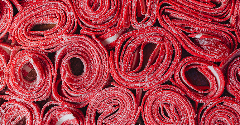
Confirmed: California bans four ‘toxic’ food additives
10 Oct 2023
Four food additives, including the colouring Red No. 3, will be banned in food in the US state of California over safety concerns, with public health campaigners hoping this will spark a nationwide ban in the coming years.
Read more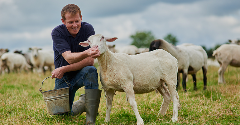
Advocacy groups condemn EU Commission for backpedalling on animal rights
3 Oct 2023
Amid rumours that the EU may abandon its plans to improve animal welfare in farming and end the use of cages, many stakeholders have condemned this possibility and urged the EU to reconsider.
Read more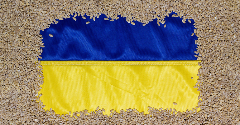
Poland and Ukraine attempt to resolve grain dispute
29 Sep 2023
Poland and Ukraine have begun talks to try to resolve a dispute regarding the ban on Kyiv’s grain imports that prompted Kyiv to file a lawsuit to the World Trade Organization.
Read more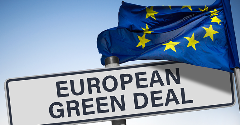
The EU may be set to scrap its sustainability commitments
27 Sep 2023
A speech delivered by President Ursula von der Leyen last week inferred that the EU could be drawing back on its commitments to create a more sustainable and healthier food system.
Read more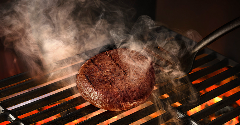
Industry first: Mosa Meat becomes first cultivated meat startup to gain B Corp certification
11 Sep 2023
A first for the industry, Dutch cultivated meat company Mosa Meat announced that it has received B Corp certification and will soon apply for regulatory approval across the globe.
Read more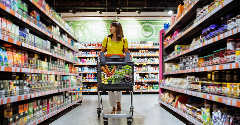
German supermarket trials climate-centric pricing model
29 Aug 2023
German discount supermarket Penny has trialled increasing product prices to mirror their health and environmental costs.
Read more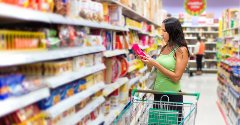
EPR fee delay spurs concerns over UK’s sustainability commitment
8 Aug 2023
The UK government’s decision to push back the introduction of fees for the Extended Producer Responsibility (EPR) due to inflation has raised doubts about whether this sustainability commitment will ever be realised.
Read more
Latino-owned food startups tackle climate change
25 Jul 2023
A growing list of Latino-founded food and beverage startups in the US are putting sustainability at the forefront of their businesses for the sake of the planet.
Read more